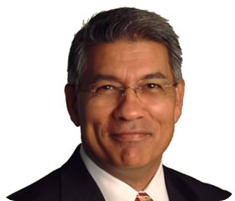The only long term solution to severe or morbid obesity, as found by the National Institutes of Health, is surgery. When someone has tried diet and other means to lose weight and has failed, surgery is the only option.
The decision to undergo surgery is typically based on other health risks associated with severe obesity such as heart disease, diabetes and others.
Please can you outline the different types of surgical procedures that reduce stomach size?
The most common procedures today include the gastric bypass surgery, which remains the gold standard operation. A new procedure called the gastric sleeve is becoming very popular as it can be performed with a single incision. All of the new procedures use minimally invasive techniques.
The LAB BAND and other procedures are becoming less common as patients seek more effective means to reduce their stomach size.
How invasive are these procedures?
All of today’s procedures are performed using minimally invasive techniques – small incisions. The gastric sleeve surgery can be performed using a single incision in the belly button, thereby resulting in a virtually scarless outcome.
Please can you describe the new Apollo technique for stomach reduction?
The Apollo procedure allows us to go through the patient’s mouth with an instrument to sew the stomach smaller with a few stitches. It takes about 45 minutes to an hour and the patient’s go home the same day.
The Apollo procedure is a good option for those who have had previous weight loss surgery and whose stomach has stretched, a very common outcome of previous surgery.
Going through the mouth, we don’t make any incisions. We use an endoscopic instrument and a tv screen to guide us and it allows us to make the stomach smaller with a few stitches.
Why does this technique not require any incisions?
Because we go through nature’s natural opening, the mouth, we are able to reach the stomach and do the surgery without any open incisions.
How long does the Apollo procedure take and how does this compare to other surgical procedures such as gastric bypass surgery?
It takes about 45 minutes to an hour and can be performed on an outpatient basis, meaning the patient goes home the same day. Gastric bypass typically takes about a bit longer and the patient goes home in one or two days.
How safe is the Apollo procedure and how does it compare to other bariatric surgeries?
It is very safe since it does not require any open incisions.
How safe is bariatric surgery as a whole?
Bariatric surgery is not without risk; however, it carries the same risk as any surgery – about a 1 to 2 percent chance of complications. Today it is considered a very safe surgery.
How long does it take for a patient to recover from the Apollo procedure?
Because we do not make any incisions, they recovery very quickly. They go home the same day. I instruct my patients to undergo a liquid diet for about 10 days to make sure we don’t stretch the stomach as it heals.
Many people who have previously had weight loss surgery stretch their stomachs back to near normal size. Is it possible for people to stretch their stomachs after they have had the Apollo procedure?
Any patient can stretch their stomachs after surgery given enough time and by eating too much. The key is to make it harder to stretch it by creating a smaller pouch in the stomach.
The good news with the Apollo procedure is that it can be performed again since it’s less invasive. But ideally, patients should see results very soon and will be compliant with their diet restrictions.
Where is the Apollo procedure currently available?
There are a handful of surgeons in the U.S. currently performing the procedure. To find out if there is one in your area, visit https://apolloendo.com/
Would you like to make any further comments?
This procedure is one of many that will soon be used to help repair stretched stomachs after a gastric bypass surgery. So-called revision surgery is quite common today as at least 25 percent of all bariatric patients will begin to gain weight back after a few years as a result of their stomachs being stretched.
Where can readers find more information?
More information is at www.tcrmc.org or https://apolloendo.com/
About Dr Shyam Dahiya
 Dr. Shyam Dahiya, Director of Minimally Invasive Bariatric & General Surgery, and Chief of Surgery at Tri-City Regional Medical Center, is a general and bariatric surgeon who is a pioneer in minimally invasive surgery.
Dr. Shyam Dahiya, Director of Minimally Invasive Bariatric & General Surgery, and Chief of Surgery at Tri-City Regional Medical Center, is a general and bariatric surgeon who is a pioneer in minimally invasive surgery.
Dr. Dahiya is one of only a handful of surgeons who use a new advanced minimally invasive system called the Spider for bariatric and certain types of general surgery. For the bariatric surgery application, the Spider system allows Dr. Dahiya to perform both gastric sleeve and LAP-BAND surgery through one tiny incision in the belly button. This advanced approach to surgery is also used by Dr. Dahiya for certain general surgery procedures as well, including gallbladder removal. He was part of the clinical investigation team for the Spider procedure and is one of the most experienced surgeons in California to use this technology, having performed hundreds of procedures using the Spider system.